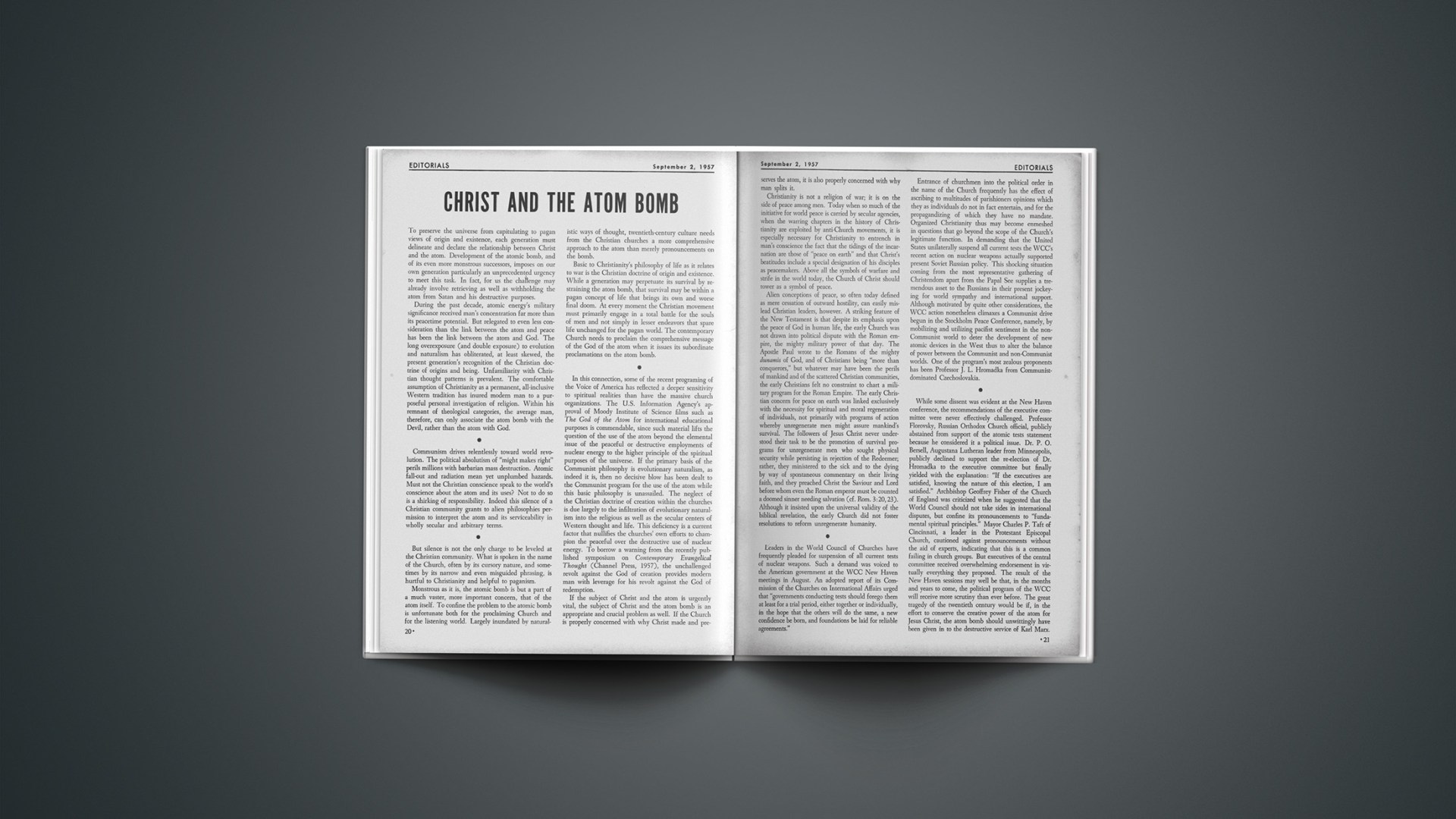The international work of the Bible Societies is a tremendous effort, especially in our times, all over the world. Whoever becomes acquainted with this work will be impressed by various aspects of this task of translating and spreading the Gospel. Already in the nineteenth century there were Christians who gave their life and time for this work; e.g., in the translation work, for the Javanese Bible (over a period of 28 years, completed in 1854), in the work of Dr. Matthes in the Makassar Bible translation, and of Dr. Hardeman, who translated the Bible into the Ngadja-Dajak language. Those who wish to be informed about all the aspects of this work should read the important Bulletin of the Bible Societies.
What was the background of this great effort? Bishop Berggraf was once reminded of the word of a Japanese Christian: “The Bible is no longer a Western book, but our book.” There had been in divine providence a way for the Gospel to the Western world and now there is a way from the Western world to the East. This work of translation is immediately connected with the witness of the Gospel, “ye shall be witnesses … unto the uttermost part of the earth” (Acts 1:8).
Sometimes there has been in church and theology a strange criticism, that Christianity gives the impression that it is a “book religion” just like other religions (Koran, etc.). But it is necessary to stress that no one can understand the meaning of this word “book” in a formal and neutral comparison between Christianity and other religions. In such a comparison the specific content of this “Book” is left out and we are warned in the Bible against formalism, against Pharisaism which adored the Torah (coming from heaven), but did not see and understand the content of grace, abounding grace. But when form and content are not separated, then this “Book” arouses a tremendous enthusiasm and activity, also scientific work.
Sometimes we are told that scientific work in connection with the Bible is not necessary because the mystery of the Kingdom is hid from the wise and prudent. It is obvious that this quotation from the Lord is misunderstood. All scientific work is not dominating the Church by the proclamation of science, but is a service to the Word of God.
This Word was not an isolated divine voice (vox divina) but a voice which penetrated the human world in a special time and special language. The Church rejects (and has to reject) every form of Docetism which does not recognize this real human side and aspect of the Bible. (Docetism—the doctrine of the docetae, an early heretical sect which held that Christ’s body was merely a phantom or appearance, or that if real its substance was celestial.) Docetism is not only to be avoided in the doctrine of Christology (it was a threatening danger in the history of the Church and extinguished the image of Christ our brother), but also in connection with the Word of God. Sometimes, against the sharp criticism of the Word of God, making this Word a human word, the divine Word was emphasized. This emphasis was correct, but we shall have to recognize the marvelous fact that there is in the Word of God no competition between the divine and the human side of this Word, but that it is exactly the divine voice that sounds in and through the human voice and brings thus the divine Word very near and understandable to us. The mystery of the Word of God is not only that God speaks to us, but that he speaks in this way. And from this important point of view the work of translating of the Bible becomes immediately important as implied in historic Christianity.
All the work of theology (obedient theology), exegesis and translation is service, no more and no less. Sometimes we can be impressed by the enthusiasm of a translator, working so that in a certain country they may hear in their own language—and the background of much unknown work is love, understanding the Gospel, “How then shall they call on him in whom they have not believed? and how shall they believe in him of whom they have not heard? and how shall they hear without a preacher?” (Romans 10:13, 14).
Of course there is danger in every Christian activity. We can do all this work in connection with the Bible as a science or as a business, with all its financial aspects. We can translate as if we are translating “a book.” But dangers are challenges to be overcome. And when we love the Word of God, then there is for us the possibility of service, in which we are reminded of the word of Pentecost, unto the uttermost part of the earth.”
All this effort needs our prayers and cooperation. In this way we shall be kept from selfishness and isolation, from glorifying the Word without obedience and love, from forgetting the world which needs the Gospel more than ever. We shall also be kept from forgetting the perspective of the Apocalypse, “the great multitude which no man could number, of all nations, and kindreds, and people, and tongues, standing before the throne and before the Lamb” (Rev. 7:9).
No Docetism will take place in our hearts, neither in Christology nor in the doctrine of the Bible. There will be no rest for the Church until the Gospel is heard everywhere. Was not the preaching of the Gospel one of the signs of the times? “And this gospel of the kingdom shall be preached in all the world for a witness unto all nations and then shall the end come” (Matt. 24:14).
This is the eschatological aspect of all the work of the Bible Societies. Eschatology never is—according to the Scriptures—without an actual responsibility in the present.











